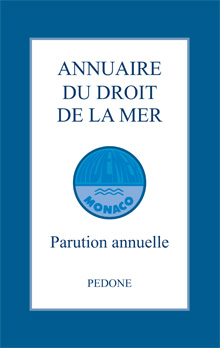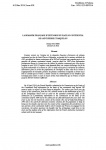Résumé
L'auteur revient sur l'origine de la demande française d'extension du plateau continental au titre de Saint-Pierre et Miquelon, en partant de la sentence arbitrale de 1992 qui définit les limites extérieures de la ZEE de l'archipel sans prendre parti sur la question du plateau continental étendu, jusqu'au dépôt en 2009 d'une information préliminaire devant la Commission des limites du plateau continental puis d'un dossier complet en avril 2014. Il replace cette demande dans son contexte historique (la fin de la pêche industrielle à la morue en 1992 a rendu nécessaire la recherche de solutions alternatives pour la survie des populations de l'archipel) et dans celui de la course à l'appropriation de nouvelles portions du plateau continental à laquelle se livrent aussi bien le Canada que la France.
L'auteur conclut en s'interrogeant sur les bénéfices que l'archipel peut retirer à court et moyen terme d'une démarche que la France a hésité jusqu'au dernier moment à effectuer.
L'auteur conclut en s'interrogeant sur les bénéfices que l'archipel peut retirer à court et moyen terme d'une démarche que la France a hésité jusqu'au dernier moment à effectuer.
Abstract
On 16 April 2014, the French Republic submitted to the Commission on the Limits of the Continental Shelf information on the limits of the continental shelf beyond 200 nautical miles in respect of Saint-Pierre-et-Miquelon. The author goes back over the history of this submission, from the 1992 arbitral award on the delimitation of the EEZ of the archipelago which took no stand on the extended continental shelf, to the submission of a preliminary information to the Commission on the limits of the continental shelf in 2009 and to the submission of a full information five years later. The event is put into the historical context of the islands (the end of industrial fishing in 1992 led to the search for alternate economic solutions for the population to keep on living on the islands) and also into the context of the competition for jurisdiction over new portions of the continental shelf in which Canada and France are engaged.
In the conclusion, the author questions the benefits that the archipelago could draw in the short and the medium term of this information that the French authorities hesitated to submit until the last moment.
In the conclusion, the author questions the benefits that the archipelago could draw in the short and the medium term of this information that the French authorities hesitated to submit until the last moment.






